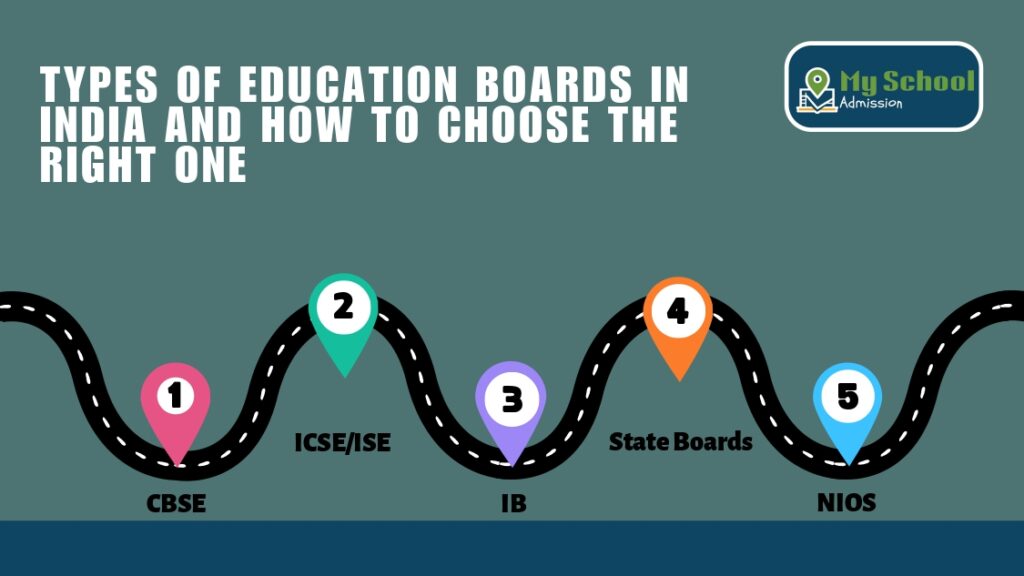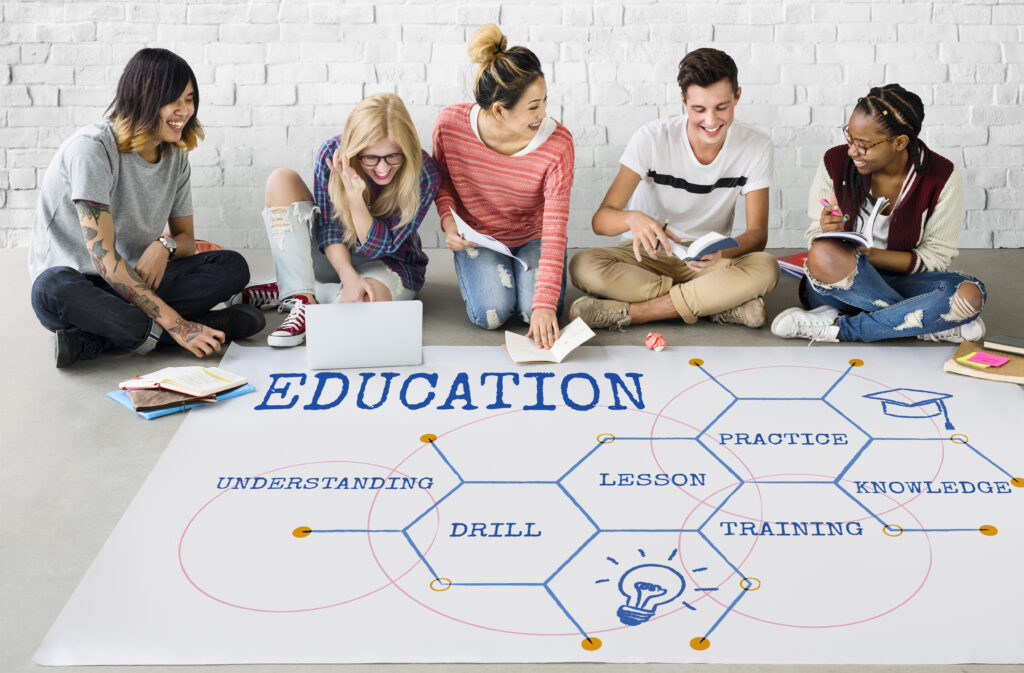The method of learning, when structured and scheduled, makes way for information and knowledge to be impactful in the lives of students. The different types of education boards in India allow for parents to choose from a variety of different ways in which their children can learn and grow. An education board shapes and plays a major role in the school journey of a student.
Different education boards in India offer different curriculum, teaching methodology and focus areas. These are the main aspects that need to be considered while choosing your ideal school.
In this blog, questions like “Which is the toughest board in India?” “Which board is the best in India?” and “How many boards are there in India?” are all answered in detail. Let’s get right into it.
How many Boards are there in India?
There are 6 main boards in India that most schools follow;
- CBSE (Central Board of Secondary Education)
- ICSE/ISE (Council for the Indian School Certificate Examinations)
- IB (International Baccalaureate)
- IGCSE (Cambridge International)
- State Boards ( Like Karnataka SSLC)
- NIOS (National Institute of Open Schooling)
Each of these education boards have a unique approach to learning, choosing the right school board among the different kinds of boards depends on the type of environment that your child would thrive in, while keeping future plans in mind. For example, CBSE would be the best choice if your child wants to pursue exams like NEET/JEET in the future. The learning environment paves the way and builds a solid foundation.
The types of education boards in India:
- CBSE (Central Board of Secondary Education)
- When the question – which education board is best in India arises, it is noteworthy that CBSE is the largest national school board which is followed by most schools across India.
- Mainly focuses on science and math and is NCERT based. This school education board prepares children for competitive exams like JEE and NEET.
- The style of assessment is objective, practical and exam focused.
- ICSE/ISE (Council for the Indian School Certificate Examinations)
- Known for strong language curriculum and holistic education, ICSE boards are considered the toughest toughest boards in India due to its detailed syllabus.
- The board offers a balanced emphasis on science, arts and languages.
- The style of assessments detailed, descriptive answers and its main focus lies in the depth of understanding.
- IB (International Baccalaureate)
- The board offers a global curriculum and inquiry based learning.
- The main focus of its curriculum is creativity, critical thinking, and global perspectives.
- The assessment styles include internal assessments, projects and extended essays.
- IGCSE (Cambridge International)
- It is internationally recognised, practical and application based learning.
- The main focus of the board’s curriculum is flexible subject choices and focuses on real world skills.
- State Boards ( Like Karnataka SSLC)
- Each state has its own board that is structured differently depending on that particular state.
- The State board curriculum is designed with regionalized language and localized syllabus.
- NIOS (National Institute of Open Schooling)
- The board offers flexible schooling options for students who cannot attend regular classes.
- It suits kids who are athletes, working students, special needs students and such.
| CBSE (Central Board of Secondary Education) | Pros : Uniform syllabus, widely available, good for relocations. Cons : Can be exam centric, less emphasis on arts/humanities. |
| ICSE/ISE (Council for the Indian School Certificate Examinations) | Pros : Good for developing analytical writing and writing skills. Cons : Slightly more challenging, syllabus can feel extensive. |
| IB (International Baccalaureate) | Pros : Builds strong foundations for overseas education. Cons : Costly, limited availability in tier 2 /3 cities. |
| State Boards ( Like Karnataka SSLC) | Pros : Affordable, accessible, easier syllabus. Cons : Syllabus varies from state to state, may not be ideal for national entrance exams. |
| NIOS (National Institute of Open Schooling) | Pros : Flexible schedule, recognized for higher studies. Cons: Requires self discipline, fewer peer interaction. |
Choosing the right education board :
Factor 1 : Academic goals
- Is your main focus on competitive exams? – CBSE will be the perfect choice.
- Is your main focus is Creative/holistic development? – ICSE or IB will be your child’s ideal board choice.
- Is your main focus is International education? IB or IGCSE is the perfect choice.
Factor 2 : budget and location
- Urban areas offer more options that follow IB/IGCSE boards, while most often than not, state boards dominate rural areas.
- IB/IGCSE fees are significantly higher than state/ CBSE boards.
Factor 3 : child’s learning styles
- Exam focused learners – CBSE
- Practical/project based learners – IB/IGCSE
- Students needing flexibility – NIOS
To answer the question, which board is best in India? There is no one size fits all, even when it comes to school education boards. The right answer lies within which school board will allow the most amount of growth in your child’s learning journey and what the future plans look like.
Conclusion
Education boards in India have their own strengths and are suited for different goals. Even the toughest board in India could be the perfect place for your child to grow. The main factor that would help lead the way to your perfect school is to consider the child’s interest, future aspirations and resources before making a choice. Need more help finding the correct school for your child? My School Admission is here to help!


